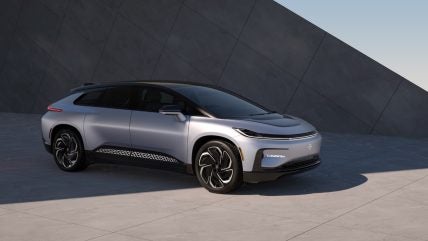
California-based EV start-up Faraday Future and its Chinese subsidiary have announced they have filed a lawsuit against its former executive Ding Lei in the Intermediate People’s Court of Shenzhen, China.
The lawsuit concerns infringement of trade secrets and unfair competition.

Discover B2B Marketing That Performs
Combine business intelligence and editorial excellence to reach engaged professionals across 36 leading media platforms.
Mr Lei is the founder of Human Horizons Holdings Co Ltd.
Faraday Future is requesting monetary damages and further requests that the court order Human Horizons to immediate cease infringing on the company’s trade secrets relating to the FF 91.
These include but are not limited limited to cease (i) using the trade secrets involved in the case, (ii) using the trade secrets involved in the case to design, develop, produce and sell alleged infringing products, and (iii) selling the alleged infringing products or use the trade secrets involved in the case to provide after-sales service for the infringing products, and to immediately cease alleged unfair competition acts.
Faraday Future was founded in 2014 and has experienced delays in getting its FF 91 Futurist model to production, which started last year.
The FF 91 was first tipped to be delivery-ready in 2018, but delivery and launch dates were pushed back several times. In 2022, it was reported the start-up needed additional capital.






